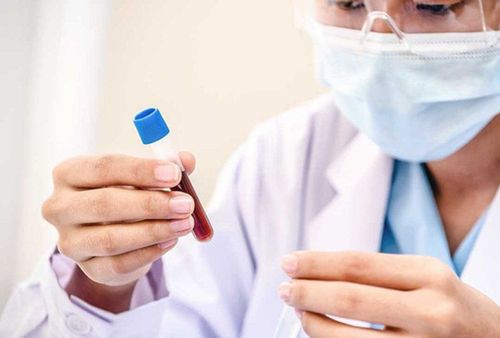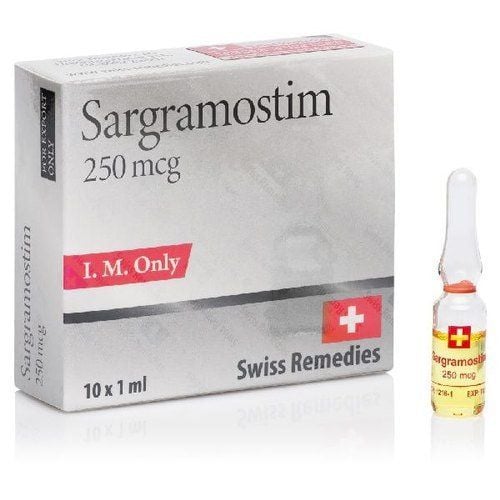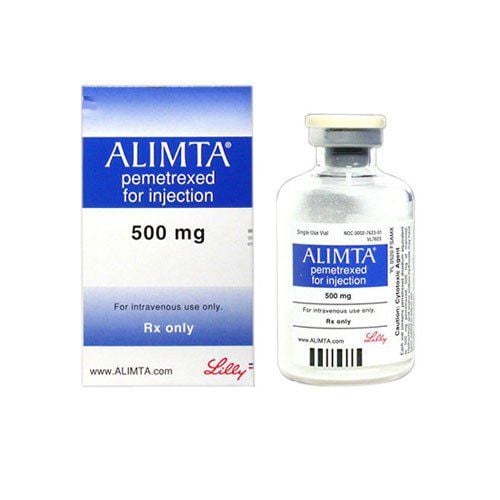This is an automatically translated article.
Treatment for head and neck cancer sometimes affects the lymph nodes and lymph node outflow. Lymph nodes may need to be removed during a head and neck surgery or they may be damaged by radiation therapy, which helps prevent lymph fluid from escaping. The following article will provide detailed information about side effects after treatment for head and neck cancer and lymphedema after treatment for head and neck cancer.
1. What is lymphedema?
Lymphedema is a chronic swelling that occurs when lymph fluid does not move well through the lymphatic system. They begin to accumulate in the tissues and lead to swelling. Lymphedema is common after treatment for a number of cancers such as breast cancer, gynecological cancer, urogenital-genital cancer, soft limb sarcoma and head and neck cancer. Lymphedema is very common, with up to 75% of patients having no symptoms after cancer treatment.
2. What causes lymphedema?
Surgery and radiation therapy are the two main causes that change the anatomical structure of the lymphatic system, leading to osmosis and stagnation of lymph fluid in the interstitial tissue. Immediately afterwards, a local inflammatory response is activated with proliferation of fibroblasts and connective tissue. This long process will cause tissue fibrosis, which ultimately results in organ dysfunction.
If you have head and neck cancer, lymphedema can occur in any part of the head, neck, and face. There are a large number of lymph nodes in these areas. Lymphedema can occur after cancer treatment because parts of the lymphatic system have been removed or damaged by surgery or radiation. Additionally, scar tissue from these treatments can change the way the lymphatic system works.
Lymphedema occurs 2-6 months after treatment but can also occur years after treatment.
3. Symptoms of lymphedema
Lymphedema in patients with head and neck cancer can occur almost anywhere on the face, head, or neck. Internal swelling in places such as mouth, tongue, throat. Or, the bump may be external, occurring on the neck and face. Although the location and severity varies from person to person, some symptoms to watch for include:
Swelling in any part of the face, head or neck, especially swelling that feels hard when touch Pain, stiffness, or reduced range of motion in the neck or shoulders Feeling of tightness in the skin or muscles in the face, head, or neck New pain, tingling, numbness, or other discomfort in the face, head, or neck Changes in vision or changes in hearing Difficulty breathing, swallowing, eating or speaking Feeling congested Ear pain
4. Diagnosis of lymphedema after head and neck cancer treatment
Although some swelling is normal after surgery or radiation, any swelling that persists for more than 6 weeks of treatment should be reviewed by a doctor. You should also have a physical exam and measure swelling or use a standardized lymphedema scale for evaluation. Your doctor will check to make sure there is no other cause for your swelling, such as a blood clot or infection.
To make a definitive diagnosis of lymphedema, your doctor may order one of the following tests:
Magnetic resonance imaging (MRI); Computed tomography (CT); Doppler ultrasound Lymphoscintigraphy can also be used to identify abnormalities of the lymphatic system. If diagnosed with lymphedema, a doctor can determine severity using an objective scoring system such as the MD Anderson Cancer Center Lymphedema Scale of Head and Neck, which uses Use 5 stages to describe lymphedema:
Stage 0: No swelling but a feeling of heaviness in the neck Stage 1a: Mild swelling visible without pitting. Reversible Stage 1b: Mild swelling with pitting is visible. Reversible Stage 2: Unrecoverable firming. No obvious tissue changes Stage 3: Irreversible tissue changes with scarring and fibrosis The doctor will monitor the progression of lymphedema with standard measurements of the face and neck to look for swelling externally or endoscopically to assess internal swelling.
5. Prevention and treatment of lymphedema after head and neck cancer treatment
Some measures that can help prevent this will include:
After cancer treatment, avoid heavy activity with the damaged limb and rest during recovery; Do not take very hot baths or showers; Do not wear tight clothing; Do not wear jewelry too closely; Avoid going barefoot and wear the right size sandals; Watch for changes or stretch marks in the skin; Daily moisturizing of the skin; Use gloves when gardening; Keep nails short; Use insect repellent; Use sunscreen with a high sun protection factor; When a hand is cut, it is necessary to treat it immediately with an antiseptic cream and keep the area clean. Blood pressure checks, blood draws or injections into the affected limb should be avoided; Diet in moderation, control body weight and obesity. The heavier the patient, the higher the tension in the swollen areas will be. A healthy diet and ideal body weight can help ease the signs and symptoms of lymphedema.
Lymphedema needs to be treated as soon as possible, the better the outcome. The treatment methods are quite simple, patients can practice at home will include:
Massage: Use fingers to gently massage on the skin of the face - neck in a circular motion to promote lymphatic circulation. Exercise regularly: increase movement in the muscles of the head - neck Wear an elastic band on the head - neck Keep skin clean and apply moisturizer to the skin Sleep with the head elevated To avoid injury and infection to the head area - neck Do not be overweight. Infrared light to help reduce fibrosis; Use negative pressure vibrator. Vinmec International General Hospital is always at the forefront of medical services with a team of highly qualified, well-trained doctors, and a system of modern equipment. The hospital has many specialties with its own advantages and disadvantages, so when there are health problems, customers can go to the hospital to be examined and treated according to the most modern protocols. The examination is performed by a team of qualified doctors combined with modern machinery systems, so customers can be assured of the service here.
Please dial HOTLINE for more information or register for an appointment HERE. Download MyVinmec app to make appointments faster and to manage your bookings easily.
Reference source: headandneck.org - oncolink.org












